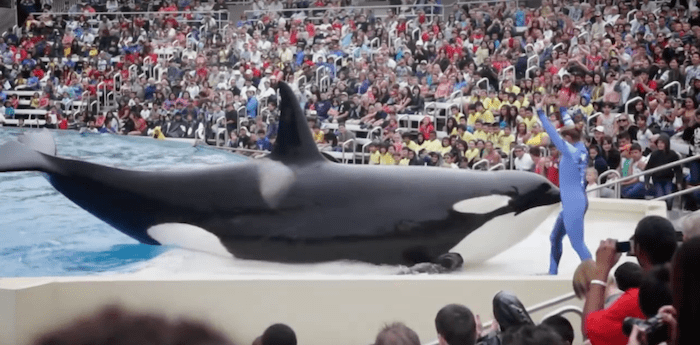Pamela Anderson wasn't exactly having a 'whale of a time' on her birthday this year.
The Canadian actress and PETA spokesperson turned 52 on Canada Day, and is pleading for help with an animal that shares the same birth year - a captive orca named Corky.
 Photo: PETA (People for the Ethical Treatment of Animals) / YouTube
Photo: PETA (People for the Ethical Treatment of Animals) / YouTube
Corky, who is being held at SeaWorld in Orlando, was captured off the coast of British Columbia in 1969 close to where Anderson grew up. Now, Anderson is pleading for his release, appearing in her 'birthday suit' in a new PETA campaign. She poses in a cramped tub with her head pulled to the side underneath the words "Could You Live in a Bathtub for Decades?"
"Please don't let her die in a tank that, to her, is comparable to the size of a bathtub," Anderson writes in a letter to new SeaWorld CEO Gustavo Antorcha.
"Corky's brother and sister are still alive and flourishing in the wild," Anderson writes, "and a Canadian scientist who has been studying her family wants to bring her home. It's within your power to release this long-suffering orca to a seaside sanctuary in a protected bay of her home waters."
PETA notes that Corky was used in a "now-illegal breeding program" that resulted in the death of seven of her offspring within weeks.
PETA states that orcas swim up to 400 miles a day in the wild, and that an orca would have to do 4,280 laps in the largest tank at SeaWorld in order to swim that far. Furthermore, they note that the marine giants' shallow tanks are filled with "chemically treated water, where the high level of sun exposure can cause them to develop skin and eye disease."
In January 2018, the Vancouver Aquarium announced its decision to stop displaying cetaceans. Helen, a Pacific white-sided dolphin, is the only cetacean left living at the aquarium.


